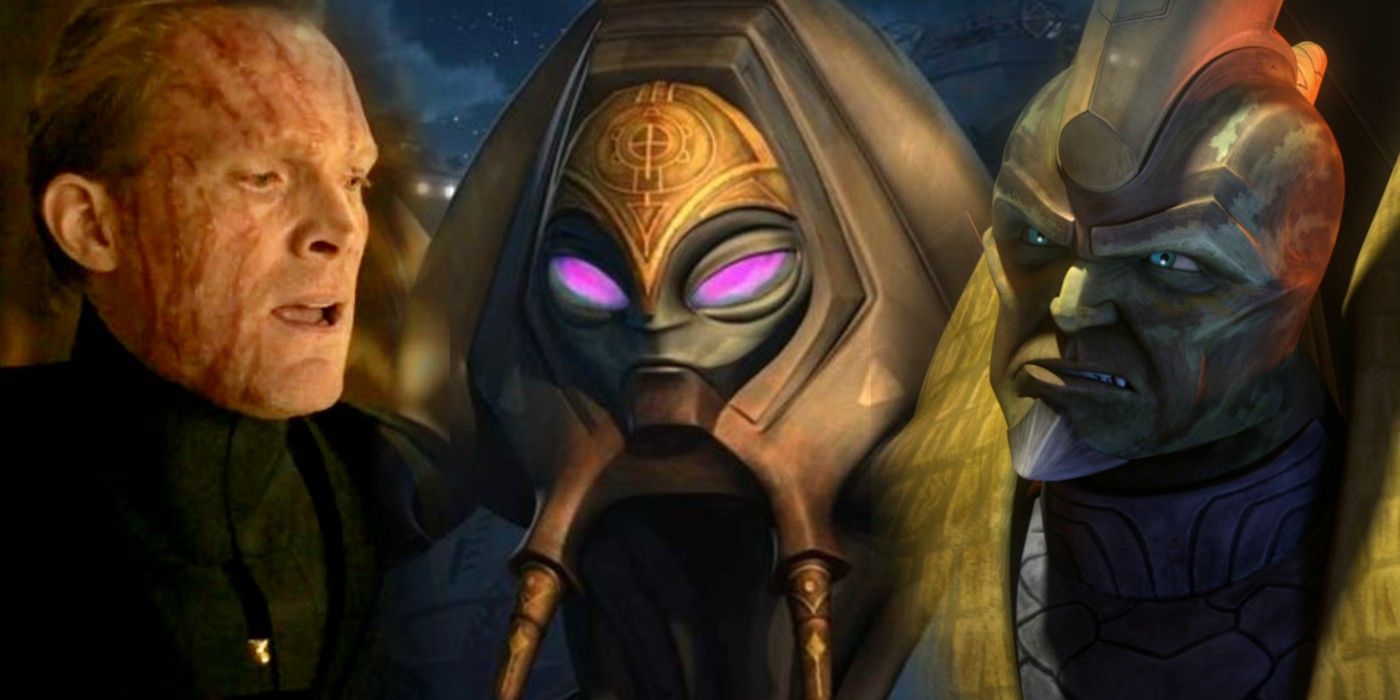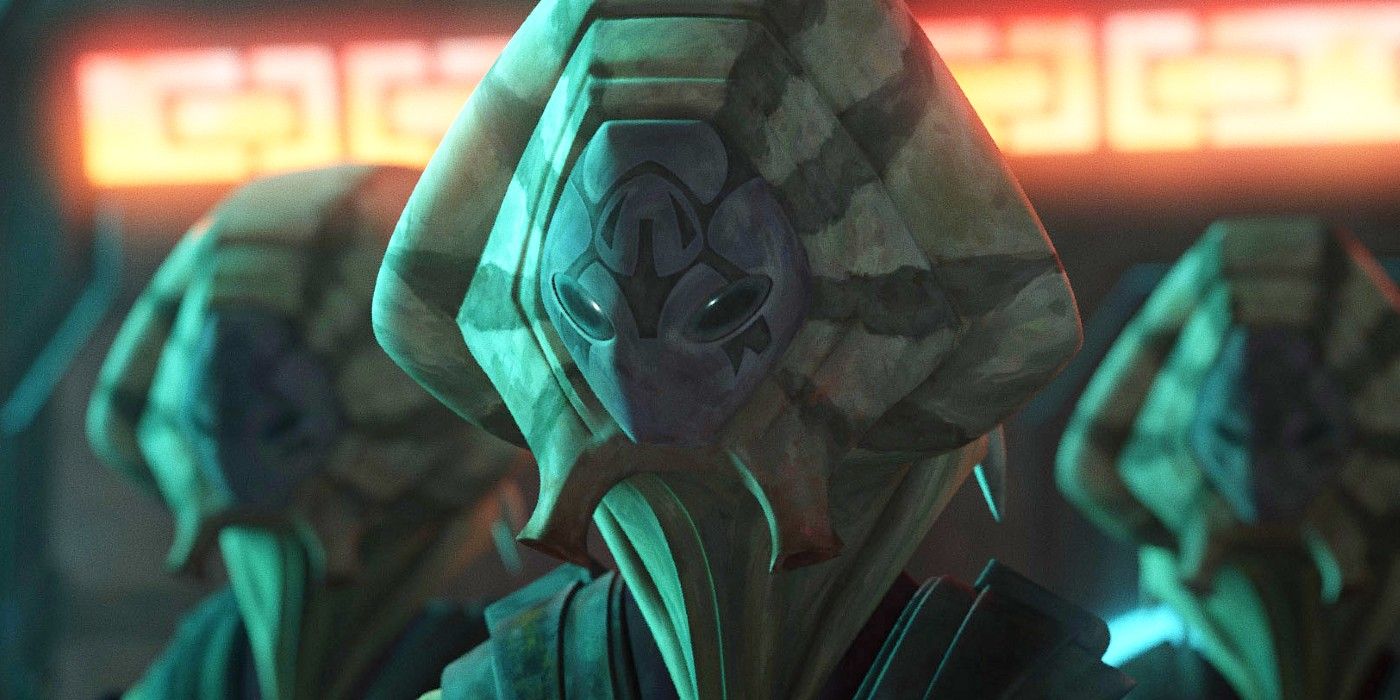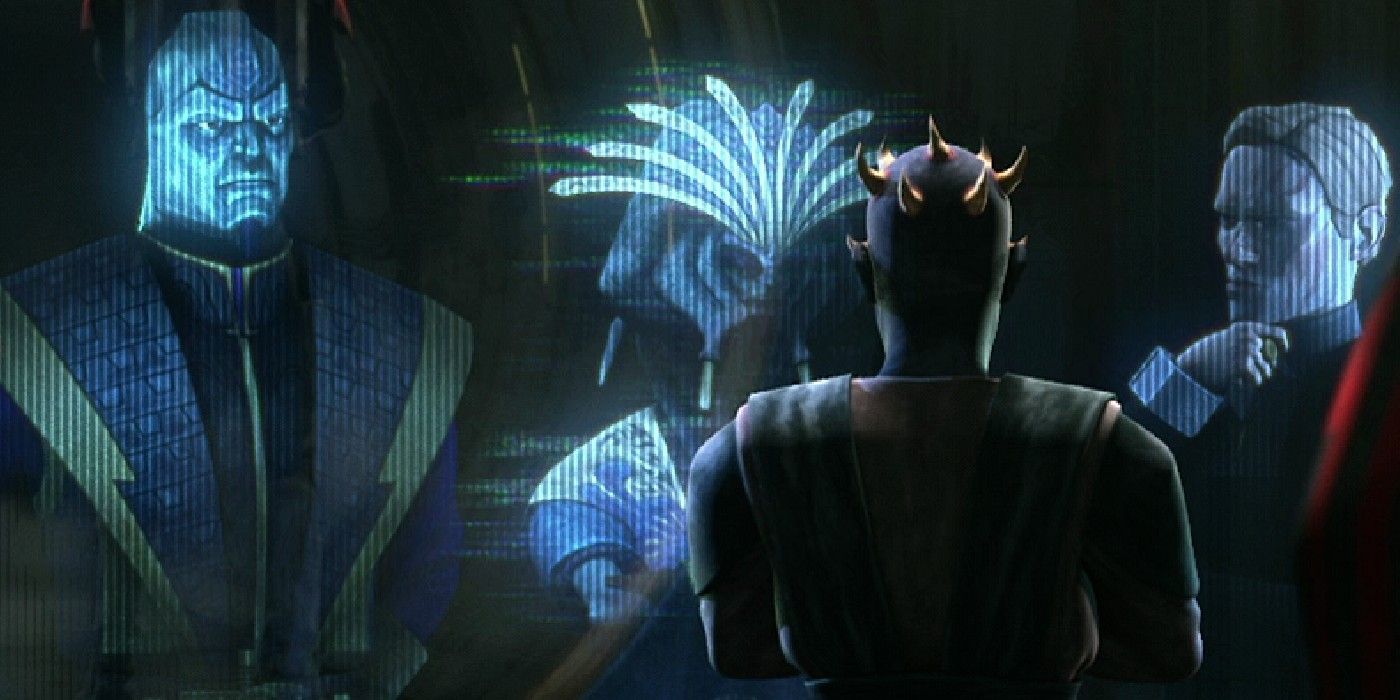WARNING: The following contains spoilers for Star Wars: The Bad Batch Season 1, Episode 13, “Infested,” streaming now on Disney+.
The first season of The Bad Batch has been all about how Clone Force 99 is adapting to the changing galaxy after the Republic fell and the Empire rose to take its place. One of the biggest changes is the overarching rule that “might makes right.” This applies to the Empire’s bullish, militaristic tactics, but it also applies on smaller scales. The show has already shown the popularization of the bounty hunting profession, and now, “Infested” highlights just how much crime syndicates are thriving under the Empire’s new rule.
The Bad Batch's latest episode shows how Roland Durand, an up-and-coming crime lord, takes over Cid’s Parlor as his base of operations. Cid is, understandably, not happy, so she blackmails the Bad Batch into helping her regain her place. They steal spice from Roland and put him in a bad situation with the Pyke crime syndicate. However, they don’t fully execute their plan, and the Pykes catch them.
So, being forced to leave Omega as collateral, Clone Force 99 goes to retrieve the spice they had lost in the mines of Ord Mantell. While they are gone, Omega and Roland have a brief conversation where Omega learns that crime is a family business for the Durands. When she responds with disdain, Roland says, “You make it sound so undignified.” His family members believe that if they want something, they should simply be able to take it. With the state of the galaxy, it’s clear that crime is now a legitimate form of business.
For all of its flaws, the Republic tried to keep the major crime syndicates from doing too much damage to the galaxy. Although they were not always enforced, there were laws against slavery, spice and other illicit activities. The Empire, on the other hand, operates on a totally different wavelength. Unless someone is directly harming the Empire's prospects, they are pretty much free to do what they want. In fact, the Empire would even make mutually beneficial deals with some of the bigger syndicates to grow both of their controls.
In other words, the galaxy was kind of a free-for-all, and clearly, money and power lead to fear and status -- a tactic that had been perfected by more than a few at this time in galactic history. While miniature crime families -- like the Durands -- could run criminal activities, there was always a bigger fish, with five major syndicates operating at this time. The first syndicate was the Pykes. They were featured in this episode as they grew their spice empire. The second syndicate was Crimson Dawn, which Dryden Vos led until his death in Solo: A Star Wars Story. The third was Black Sun, which operated off of Ord Mantell, and the fourth was the Crymorah syndicate. Finally, the Hutts operated their own empire out in Hutt Space.
Crime was a legitimate and even respectable option for monetary gain, but it was also a means for revenge. During the Clone Wars, Darth Maul started to build his Shadow Collective, and it is becoming more powerful now because of the state of the galaxy. The Pykes have been seen on screen, and Black Sun has been alluded to with Ord Mantell, so the only major remaining member that The Bad Batch has not yet been referenced is Crimson Dawn. Perhaps the last few episodes will offer a way for Crimson Dawn and Darth Maul to make an appearance in the galaxy that is now run by criminals.
Created by Dave Filoni, Star Wars: The Bad Batch drops new episodes each Friday on Disney+.



